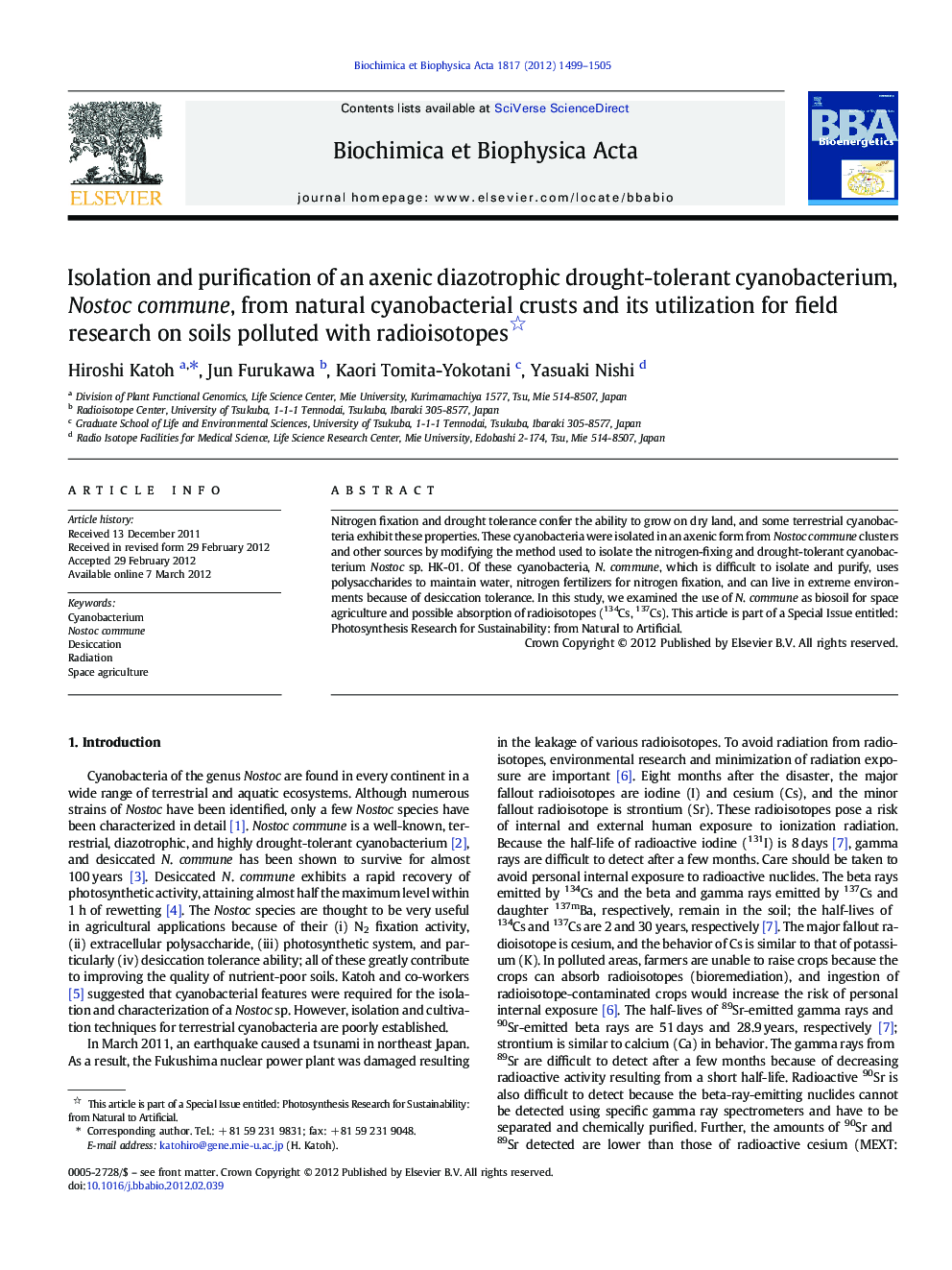| Article ID | Journal | Published Year | Pages | File Type |
|---|---|---|---|---|
| 1942426 | Biochimica et Biophysica Acta (BBA) - Bioenergetics | 2012 | 7 Pages |
Nitrogen fixation and drought tolerance confer the ability to grow on dry land, and some terrestrial cyanobacteria exhibit these properties. These cyanobacteria were isolated in an axenic form from Nostoc commune clusters and other sources by modifying the method used to isolate the nitrogen-fixing and drought-tolerant cyanobacterium Nostoc sp. HK-01. Of these cyanobacteria, N. commune, which is difficult to isolate and purify, uses polysaccharides to maintain water, nitrogen fertilizers for nitrogen fixation, and can live in extreme environments because of desiccation tolerance. In this study, we examined the use of N. commune as biosoil for space agriculture and possible absorption of radioisotopes (134Cs, 137Cs). This article is part of a Special Issue entitled: Photosynthesis Research for Sustainability: from Natural to Artificial.
► Unculturable Nostoc commune is isolated axenically from cyanobacterial crusts. ► Plants grow on axenic N. commune mat as bio-soil and fertilizer. ► N. commune crusts have ability to accumulate radioisotopes. ► Desiccation and radiation tolerance of N. commune is useful for space agriculture. ► Axenic Nostoc commune is a model organism to study photosynthesis and applied tools.
